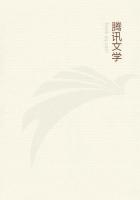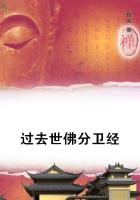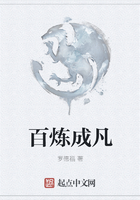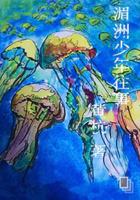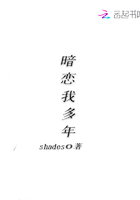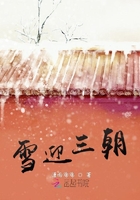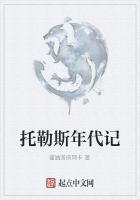Wasn't it true, she was asked, that in Locmine she had been followed and insulted with cries: C'est la femme au foie blanc; elle porte la mort avec elle!''? Nobody had ever said anything of the sort to her, was her sullen answer.A useless denial.There were plenty of witnesses to express their belief in her white liver'' and to tell of her reputation ofcarrying death.
Asked why she had been dismissed from the convent at Auray, she answered that she did not know.The Mother Superior had told her to go.She had been too old to learn reading and writing.Pressed on the point of the slashed garments of the pupils and the linen in the convent cupboards, Helene retorted that somebody had cut her petticoats as well, and that, anyhow, the sisters had never accused her of working the mischief.
This last answer was true in part.The evidence on which Helene had been dismissed the convent was circumstantial.A sister from the community described Helene's behaviour otherwise as edifying indeed.
After the merciless fashion of French judges, the President came back time and again to attack Helene on the question of poison.If Perrotte Mace did not get the poison from her--from whom, then?
I don't know anything of poison,'' was the reply, with the pious addendum, and, God willing, I never will!''
This, with variations, was her constant answer.
Qu'est-ce que c'est l'arsenic? Je n'en ai jamais vu d'arsenic, moi!''
The President had occasion later to take her up on these denials.The curate of Seglien came to give evidence.He had been curate during the time of M.Conan, in whose service Helene had been at that time.He could swear that M.Conan had repeatedly told his servants to watch that the domestic animals did not get at the poisoned bait prepared for the rats.
M.Conan's servants had complete access to the arsenic used.
Helene interposed at this point.I know,'' she said, that M.Conan had asked for arsenic, but I wasn't there at the time.My aunt told me about it.''
The President reminded her that in her interrogaion she had declared she knew nothing of arsenic, nor had heard anyone speak of it.Helene sullenly persisted in her first declaration, but modified it with the admission that her aunt had told her the stuff was dangerous, and not to be used save with the strictest precautions.
This evidence of the arsenic at Seglien was brought forward on the second day of the trial, when witnesses began to be heard.Beforepursuing the point of where the accused might have obtained the poison I should like to quote, as typical of the hypocritical piety exhibited by Helene, one of her answers on the first day.
After reminding her that Rose Tessier's sickness had increased after taking a tisane that Helene had prepared the President asked if it was not the fact that she alone had looked after Rose.
No,'' Helen replied.Everybody was meddling.All I did was put the tisane on to boil.I have suffered a great deal,'' she added gratuitously.
The good God will give me grace to bear up to the end.If I have not died of my sufferings in prison it is because God's hand has guided and sustained me.''
With that in parenthesis, let us return to the evidence of the witnesses on the second day of the trial.A great deal of it had to do with deaths on which, under the prescription, no charge could be made against Helene, and with thefts that equally could not be the subject of accusation.
Dr Galzain, of Ponivy, who, eighteen years before, had performed the autopsy on Le Drogo, cure of Guern, testified that though he had then been puzzled by the pathological conditions, he was now prepared to say they were consistent with arsenical poisoning.
Martel, a pharmacist, brother of the doctor who had attended Le Drogo, spoke of his brother's suspicions, suspicions which had recurred on meeting with the cases at Bubry.They had been diverted by the lavishly affectionate attendance Helene had given to the sufferers.
Relatives of the victims of Locmine told of Helene's predictions of death, and of her plaints that death followed her everywhere.They also remarked on the very kind ministrations of Helene.
Dr Toussaint, doctor at Locmine, and son to the house in which Helene had for a time been servant, told of his perplexity over the symptoms in the cases of the Widow Lorey and the youth Leboucher.In 1835 he had been called in to see Helene herself, who was suffering from an intermittent fever.Next day the fever had disappeared.He was told that she had been dosing herself, and he was shown a packet which had been in her possession.It contained substances that looked like kermes- mineral, some saffron, and a white powder that amounted to perhapsten grammes.He had disliked Helene at first sight.She had not been long in his mother's service when his mother's maid-companion (Anne Eveno), who also had no liking for Helene, fell ill and died.His father fell violently ill in turn, seemed to get better, and looked like recovering.But inexplicable complications supervened, and his father died suddenly of a haemorrhage of the intestinal canal.His sister Julie, who had been the first to fall sick, also seemed to recover, but after the death of the father had a relapse.In his idea Helene, having cured herself, was able to drug the invalids in her care.The witness ordered her to be kept completely away from the sufferers, but one night she contrived to get the nurses out of the way.A confrere he called in ordered bouillon to be given.Helene had charge of the kitchen, and it was she who prepared the bouillon.It was she who administered it.Three hours later his sister died in agony.
Or, simply, kermes--a pharmaceutical composition, containing antimony and sodium sulphates and oxide of antimony--formerly used as an expectorant.


